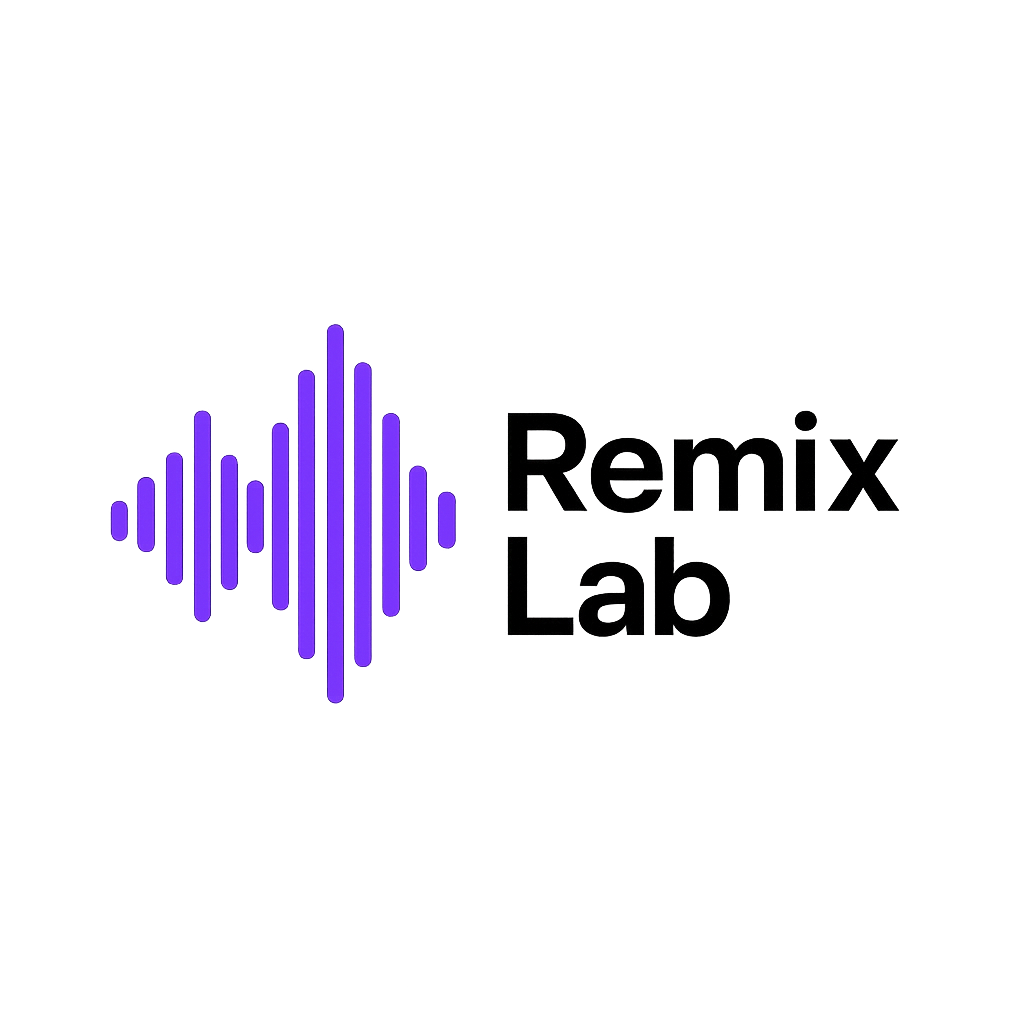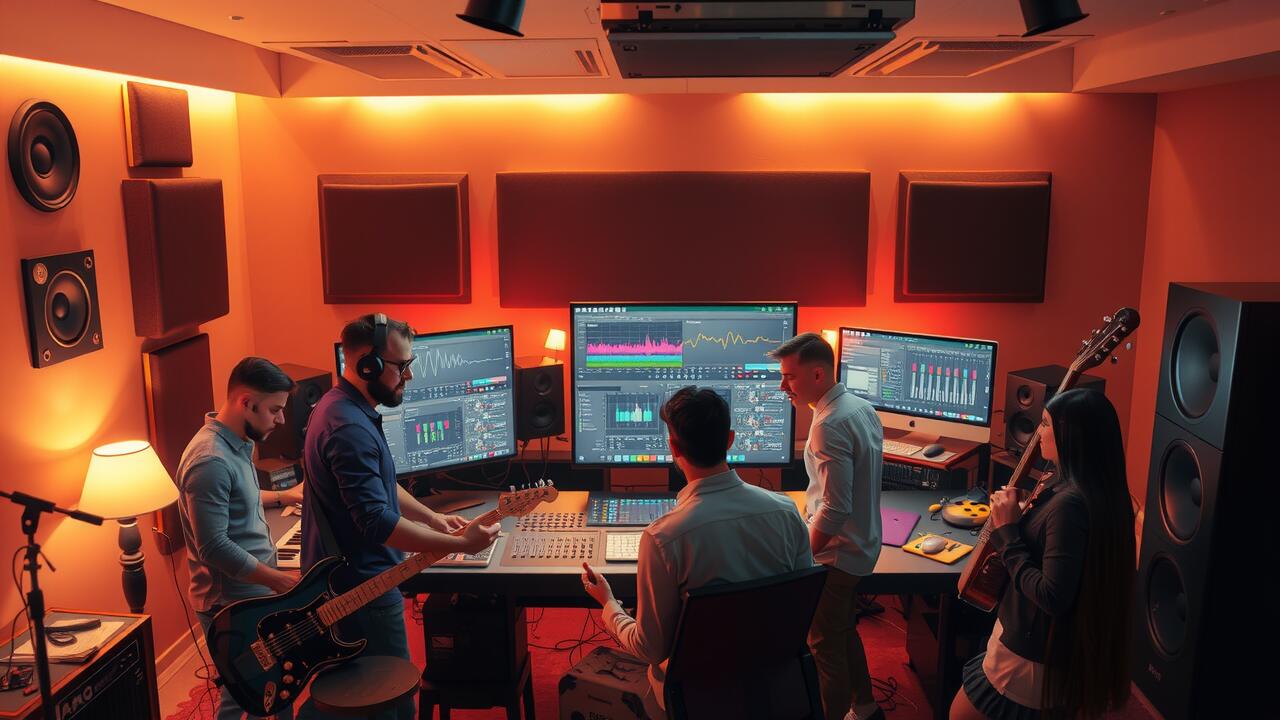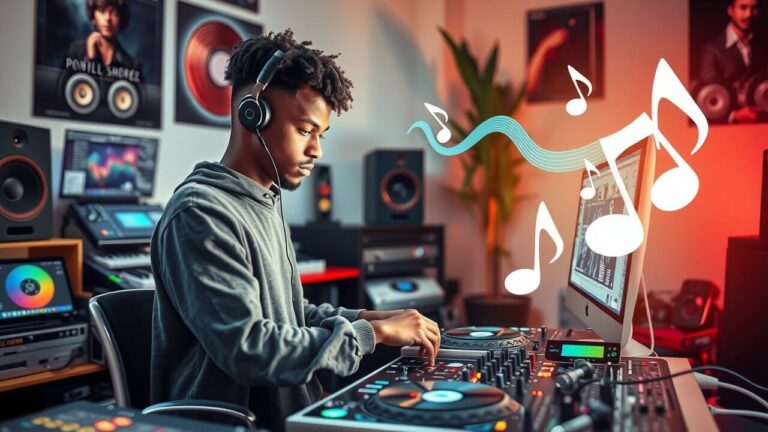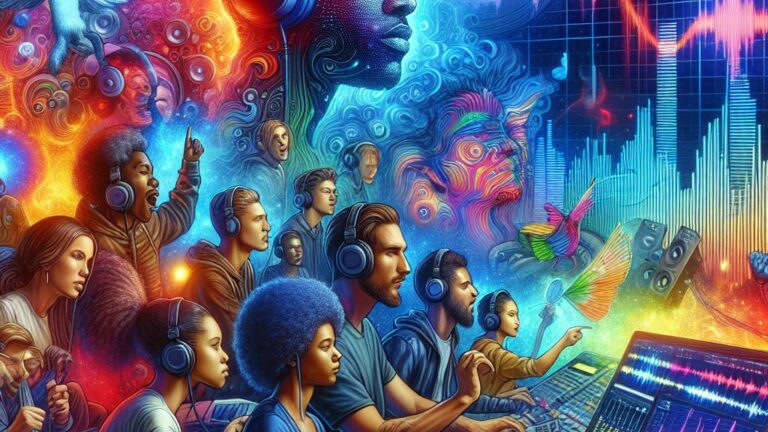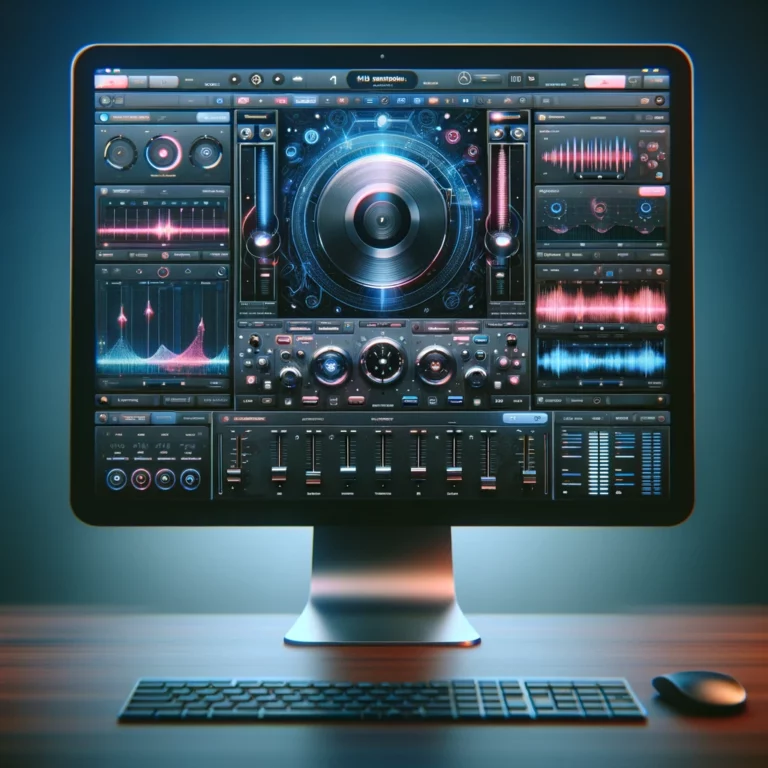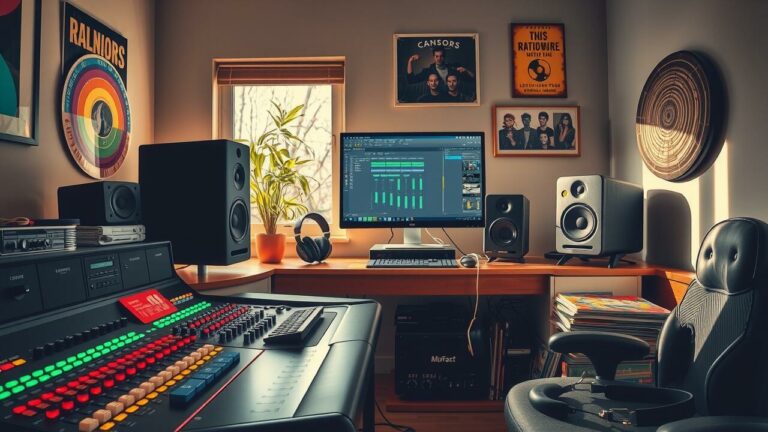How AI is Revolutionizing Music: From Composition to Mastering
Mastering Music with Artificial Intelligence
The ascent of artificial intelligence in the realm of music mastering marks a striking leap forward in technological innovation. Imagine algorithms, those intricate webs of code, meticulously dissecting audio tracks with an almost surgical precision—spotting flaws and potential enhancements that might elude even the most seasoned human engineers. This not only paves the way for a more fluid workflow but also slashes the time and energy usually invested in the mastering process.
What’s more, this AI-driven revolution brings about an elevated level of consistency and dependability, ensuring that every final product aligns seamlessly with industry benchmarks across diverse platforms. It’s a game-changer!
For musicians embracing these AI tools, high-quality mastering services are no longer just a privilege for those deep-pocketed enough to afford them. Independent artists can effortlessly churn out tracks that shine with professional polish—all without breaking the bank on costly studio hours! The infusion of AI into mastering doesn’t merely level the playing field; it ignites creativity itself by liberating artists from being bogged down by technical complexities, allowing them to hone in on their artistic vision like never before.
Achieving Professional Sound Quality
The infusion of artificial intelligence into the realm of audio mastering heralds a seismic shift in the quest for impeccable sound quality. Imagine, if you will, intricate algorithms dissecting music tracks with surgical precision—unearthing those elusive frequency imbalances, dynamic shifts, and tonal irregularities that might slip past even the most discerning human ear. These cutting-edge tools harness machine learning to navigate industry standards like seasoned pros, ensuring that every final mix not only meets professional benchmarks but also preserves the unique essence of an artist’s signature sound.
But wait! There’s more: leveraging AI for music mastering turbocharges efficiency throughout the production process. Artists and producers can now tap into real-time feedback loops, empowering them to make lightning-fast decisions without sacrificing their creative vision. This technological revolution doesn’t just level the playing field; it democratizes access to top-tier sound quality—enabling smaller studios and independent musicians to stand toe-to-toe with major labels, all without draining their resources dry. With this bold new approach, we find ourselves in an era where tracks resonate profoundly with audiences like never before.
Exploring AI in Music Distribution
The ascent of artificial intelligence has dramatically reshaped the landscape of music distribution, introducing a flurry of innovative solutions that simplify the entire process for artists and labels alike. Picture this: AI algorithms dissect listener data and preferences with surgical precision, crafting marketing campaigns that hit their target dead-on. This data-driven wizardry unveils potential fan bases like hidden treasure maps, allowing artists to amplify their reach and supercharge engagement like never before. And let’s not forget about those automated distribution platforms—they’re turning around music releases faster than you can say “streaming service,” slashing the time and effort once required to juggle multiple channels.
For independent artists, these breakthroughs are nothing short of revolutionary. With traditional barriers crumbling away like old brick walls, up-and-coming musicians are now armed with AI tools that grant them access to wider audiences—no major label strings attached! Services utilizing predictive analytics serve up savvy suggestions on when to release tracks and how best to promote them based on current market trends. This democratized approach isn’t just a buzzword; it empowers diverse talent from all walks of life, enabling them to rise above the noise in an increasingly crowded marketplace where competition is fierce but opportunity abounds.
Changing the Landscape for Independent Artists
The surge of artificial intelligence in music distribution has turned the tide, casting a wide net of accessibility for independent artists. Gone are the days when soaring marketing costs and elusive distribution deals stood as towering obstacles for nascent musicians; those barriers have crumbled significantly. Enter AI-driven platforms, which now possess the uncanny ability to dissect audience behavior with surgical precision, enabling artists to zero in on their ideal listeners without draining their resources.
But wait—there’s more! This data-wielding prowess not only empowers musicians but also breathes new life into creativity and innovation among them. Imagine tools fueled by machine learning that spill forth insights about genre trends and audience inclinations, allowing artists to boldly traverse uncharted stylistic territories while staying true to themselves. And don’t overlook collaborative AI software—it’s a treasure chest brimming with features that aid in composition and arrangement, liberating artists from the confines of traditional studio settings.
As these shifts unfold, the creative process morphs into something far more attainable—a veritable gateway flung open wide for fresh voices eager to make their mark in an ever-evolving musical tapestry.
| AI Platform | Key Features | Target Audience |
|---|---|---|
| Amper Music | AI-driven music composition, royalty-free tracks | Independent composers, content creators |
| Audeo | Music creation through text, genre-specific recommendations | New and emerging artists |
| SubmitHub | Targeted submissions to blogs, playlists, and labels | Independent musicians seeking exposure |
| Landr | Automated mastering, music distribution services | DIY musicians, producers |
Ethical Considerations in AI-Generated Music
As artificial intelligence weaves its intricate web through the music industry, a tangled skein of ethical dilemmas unfurls, particularly when it comes to copyright and ownership. The emergence of AI-generated compositions ushers in a labyrinthine challenge regarding authorship—who really created this piece? Traditional copyright laws seem ill-equipped for these uncharted waters where machines, not humans, take the helm in musical creation. This quagmire sparks an array of questions about who can rightfully claim ownership over a melody birthed from silicon rather than flesh.
Moreover, there’s an unsettling possibility that AI might mimic existing styles and sounds with uncanny precision, igniting fiery debates over what constitutes originality. When a machine sifts through mountains of pre-existing music to learn and produce new works, could it unintentionally tread upon the sacred ground of human composers’ intellectual property? This conundrum creates an uneasy tension for artists caught between drawing inspiration from the rich tapestry of past creations and navigating the murky ethics surrounding AI tools that threaten to bypass time-honored legal safeguards.
Copyright and Ownership Issues
The infusion of artificial intelligence into the realm of music creation spins a web of intricate questions surrounding copyright and ownership. When an AI conjures up a melody or composition, the pressing issue emerges: who claims the legal rights to this auditory creation? Copyright laws, traditionally tailored to safeguard human creators, suddenly find themselves in murky waters when machines or algorithms take center stage as ‘creators.’ This bewildering complexity can throw artists and AI developers into a maze of contractual confusion, sowing seeds of uncertainty in licensing agreements and revenue channels.
Moreover, there’s a tantalizing yet troubling prospect—AI’s ability to mimic existing musical styles or elements ignites debates about originality and potential infringement. Imagine an AI meticulously trained on an expansive library of prior works; it might churn out pieces that echo protected music so closely that it sends shivers down the spine of creativity itself. This phenomenon blurs the once-clear boundary between inspiration and outright theft, raising profound legal and ethical quandaries regarding how we classify these AI-generated compositions. Are they truly original creations? Such dilemmas challenge our very understanding of intellectual property frameworks within the ever-evolving landscape of the music industry.
The Future of Live Music Performance
The landscape of live music performance is on the brink of a radical metamorphosis, all thanks to the relentless march of artificial intelligence. Imagine this: AI-driven technologies weaving through crowds in real-time, dissecting audience reactions like an astute conductor interpreting every subtle shift in mood. With uncanny precision, they tweak sound dynamics, orchestrate mesmerizing lighting displays, and even curate setlists that pulse with the heartbeat of those gathered—each note tailored to resonate deeply within listeners’ souls. This isn’t just a concert; it’s an electrifying experience that elevates engagement to dizzying new altitudes.
But wait! The magic doesn’t stop there. Envision musicians empowered by these AI tools—freeing them from mundane distractions so they can dive headfirst into their artistry. Picture real-time sound enhancement systems working tirelessly behind the scenes, fine-tuning acoustics for each unique venue until every single note rings out crystal clear and resonates powerfully through the air. And let’s not forget about collaboration; when AI joins forces with human talent, we’re not merely looking at innovation—we’re witnessing the birth of entirely new genres and styles that shatter expectations and ignite creativity like never before in live music experiences!
AI in Real-Time Sound Enhancement
The infusion of artificial intelligence into live performance realms has utterly revolutionized the art of real-time sound management. Picture this: AI systems, like lightning bolts of digital ingenuity, swiftly dissect audio input, skillfully adjusting equalization, compression, and reverb in harmony with the venue’s unique acoustics and the whims of performers. This astonishing capability not only amplifies sound quality to celestial heights but also curtails those pesky human errors that can plague a live show. Musicians find themselves liberated—no longer tethered to the technical minutiae of sound engineering; instead, they can dive headfirst into creativity and forge connections with their audiences.
Embracing these AI-driven wonders allows artists to elevate their performances on-the-fly. Imagine algorithms that can sense which frequencies are dancing through a space and automatically tweak audio output for pristine clarity and impeccable balance! This instantaneous enhancement crafts an immersive experience for audiences while seamlessly accommodating an eclectic array of musical genres and styles. As technology hurtles forward at breakneck speed, the promise of AI enhancing live music performances grows ever more tantalizing—a harbinger shaping the future landscape of entertainment itself.
Collaborative AI and Human Musicians
The advent of artificial intelligence has unleashed a whirlwind of possibilities, forging an electrifying alliance between machines and human musicians. Picture this: AI tools stepping in at various junctures of the creative journey, conjuring up innovative melodies one moment and suggesting harmonies the next. Musicians are now armed with robust algorithms that dissect their work, delivering insights that elevate their compositions to dizzying heights. This dynamic partnership empowers artists to redefine the limits of creativity, diving into sonic realms once deemed unattainable without the crutch of technology.
But wait—there’s more! These AI systems can serve up personalized feedback finely tuned to each artist’s unique style, paving the way for performances that shimmer with refinement. The interplay between tech and artistry is not just a passing phase; it’s a vibrant evolution where both realms shape each other, birthing extraordinary musical experiences. As musicians tap into AI’s vast potential, they’re not merely performing—they’re becoming savvy architects of soundscapes that enrich their craft like never before. The creative landscape is shifting beneath our feet, heralding a new generation of artists who don’t just play music but weave technology into their very essence.
Blending Creativity with Technology
The infusion of artificial intelligence into the realm of creativity has unleashed a whirlwind of possibilities for artists and composers alike. Imagine this: by harnessing the power of machine learning algorithms, musicians can dive headfirst into uncharted soundscapes, crafting groundbreaking compositions that defy the very limits of traditional songwriting. This isn’t just tech at play; it’s a collaborative dance where human ingenuity intertwines with AI prowess, birthing fresh artistic expressions that might have seemed downright impossible through conventional methods.
And there’s more! With AI tools at their fingertips, musicians gain instantaneous access to an expansive treasure trove filled with samples, genres, and styles galore. Such access invites a thrilling experimentation spree—artists can blend diverse musical influences in ways that feel both effortless and revolutionary. As AI continues to advance like a relentless tide, it nurtures a symbiotic bond with human creators—a relationship where technology transcends mere utility to become an essential co-creator. Together, they enrich the artistic journey and catapult modern music into realms yet unexplored!
- Artists can explore new genres and styles with ease through AI-driven platforms.
- AI technology enables musicians to generate unique melodies and harmonies that may not have been conceived otherwise.
- Collaborative projects between human creators and AI can lead to entirely new art forms and hybrid musical genres.
- AI tools can assist in the production process, streamlining tasks such as mixing and mastering.
- The accessibility of AI-powered tools democratizes music creation, allowing more individuals to participate in the art.
- Continuous learning algorithms enable AI to adapt to an artist’s style over time, enhancing personalized creativity.
- The fusion of technology and creativity fosters innovation, ultimately pushing the boundaries of what is considered art.
Conclusion
The infusion of artificial intelligence into the music industry has utterly transformed age-old practices, revolutionizing both the creative and technical dimensions of music production. With AI’s relentless evolution, it unveils tools that grant artists the freedom to traverse uncharted sonic territories while elevating the quality of their craft. From composition to mastering—each step is touched by technology, acting as a formidable companion, bridging gaps that once loomed large in our quest for musical expression.
Amidst this whirlwind of innovation, an ongoing conversation about ethical implications keeps us grounded. Questions around copyright and ownership throw traditional industry norms into disarray, compelling us to rethink what we truly mean by creativity and authorship. As this ever-shifting landscape continues to unfold before our eyes, the synergy between AI and human musicians brims with extraordinary potential—it’s not just reshaping the future of music; it’s redefining the very core of artistic collaboration itself.
FAQS
How is AI being utilized in the music mastering process?
In the realm of music mastering, AI steps into the spotlight, wielding its analytical prowess to dissect tracks and sprinkle them with professional-grade sound enhancements—automatically. Armed with algorithms that can detect frequencies, dynamics, and a plethora of parameters, AI meticulously optimizes sound output. The result? Music emerges polished and primed for distribution.
What influence does AI exert on music distribution for independent artists?
The landscape of music distribution has been dramatically reshaped by AI as it unfurls a toolkit brimming with capabilities tailored for independent artists. These innovative tools dive deep into market trends, pinpoint target audiences with laser precision, and fine-tune promotional strategies. This newfound ease empowers artists to navigate the crowded marketplace effortlessly while connecting their sounds to eager listeners.
Are there ethical dilemmas surrounding AI-generated music?
Indeed! The emergence of AI-generated tunes raises a cacophony of ethical questions—chief among them are copyright and ownership dilemmas. Heated discussions swirl around who rightfully holds the keys to compositions birthed or influenced by artificial intelligence. Concerns loom large about whether AI might mimic human artistic styles without giving credit where it’s due.
How is AI amplifying live music performances?
Picture this: during live performances, AI takes on an exhilarating role by deploying real-time sound enhancement technologies! These sophisticated systems analyze venue acoustics in real time and dynamically adjust sound elements as they go along—transforming each performance into an unforgettable auditory experience for both musicians and their captivated audiences.
Can AI effectively partner with human musicians in collaboration?
Absolutely! When it comes to collaboration between humans and machines,AI proves itself as a creative ally rather than just cold circuitry. It assists in the composition journey by offering fresh ideas while seamlessly adapting to a musician’s unique style—all leading toward groundbreaking musical masterpieces that blend artistry with technology like never before.
